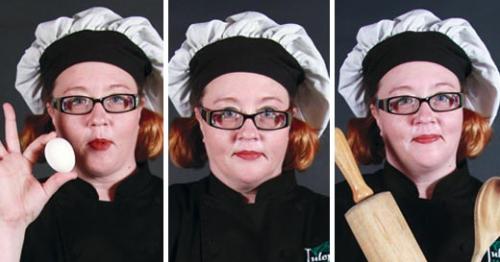This week a friend and fellow food journalist posted a thread on Facebook about hard work paying off in the hospitality industry. Many testimonials followed, with a lot of local chefs back-patting each other and lots of war stories about how many hours they all used to work at two or three jobs, some while still going to college.
I admire these guys. They put in their hard time, and there’s just no disputing that. They worked their damn asses off, and with rare exception nobody handed them anything easy or for free. No one gets to be an executive chef or even a highly skilled sous chef by working only 40 hours a week, or going home at night before midnight on a regular basis. No one owns their own restaurant autonomously who doesn’t suffer stress and pressure and the roller coaster that is the restaurant business with its razor-thin profit margins and the constant heartache and drumbeat of equipment failures and plumbing disasters and power outages.
But there’s a concept in debate parlance known as a “post hoc fallacy” – an incorrect assumption of cause and effect. Are these chefs successful simply because they worked hard? Is every chef who works hard successful? I suspect that there are plenty, dozens, perhaps hundreds of cooks and chefs working in this town that have toiled hard, for years, and have never been rewarded with a high position in a kitchen, or ownership of their own restaurant, or even a job that provides subsidized health care or paid sick days, or paid vacation.
I have no doubt that successful chefs have paid their dues and actually never stop paying their dues. But working hard does not necessarily or automatically yield accomplishment. Well-established chefs often have a magic variable that helps make them a success. An infusion of money, from family or an angel investor. A rise through the ranks that puts one on top when the boss retires or moves on. A dedicated mentor. Luck can play a role, although chefs rarely fall ass-backward into a cushy gig through luck alone.
If you’re not in the hospitality industry, and you work 40 hours a week or more in an office job or an industrial job protected by a union – could you imagine putting that much time in for years and not ever having a single paid day off? Can you imagine being given leave to take a vacation but taking the hit for all the money you would have made during it had you stayed on the job instead? Can you imagine the agonizing you’d have to do if you suddenly fell ill, and had to pay catastrophically high co payments and deductibles, balanced against your water bill and power bill and rent and car payment?
According to federal law, small businesses, those that employ 50 or less full-time-equivalent employees, are not required to offer their staff any sort of group health insurance subsidy or even the other common benefits such as paid sick days or paid vacation. Most independent restaurants fit this scenario. Even some larger employers skirt the law, simply by making sure their employees don’t reach full time status by purposely not scheduling employees to work full time.
Not small independent restaurants, though. They can work their cooks 45, 50, 60 hours a week and still offer zero benefits. The exec chef and the sous chef, almost always on salary, do usually enjoy these perks – as well they should. But consider the 50-year-old pastry chef who’s been working somewhere for 8 years at a seemingly decent hourly rate. Is $13 an hour enough to live on at 40 hours a week?
That’s less than $34K a year – and if he gets more than 40 hours that’s great at time and a half, but he’d virtually have time for almost nothing else in his life. Can he afford health insurance and car insurance? Can he live without roommates to subsidize the rent? Can he swan off to Italy or the Bahamas for a week or two a year with no pay? Can he send his children to private school? Can he pay thousands for that emergency room visit if his arm gets broken in a car accident?
I’m not optimistic about the answers to these questions. Just working hard isn’t the only key to success. We need a new plan. Those of us not fortunate enough to get the truly “great gig” need advocates. We deserve to be rewarded for working hard and for our loyalty.
Will it ever happen?
Marsha Lynch has worked at many Louisville independent restaurants including Limestone, Jack Fry’s, Jarfi’s, L&N Wine Bar and Bistro, Café Lou Lou, Marketplace @ Theater Square, Fontleroy’s and Harvest.


